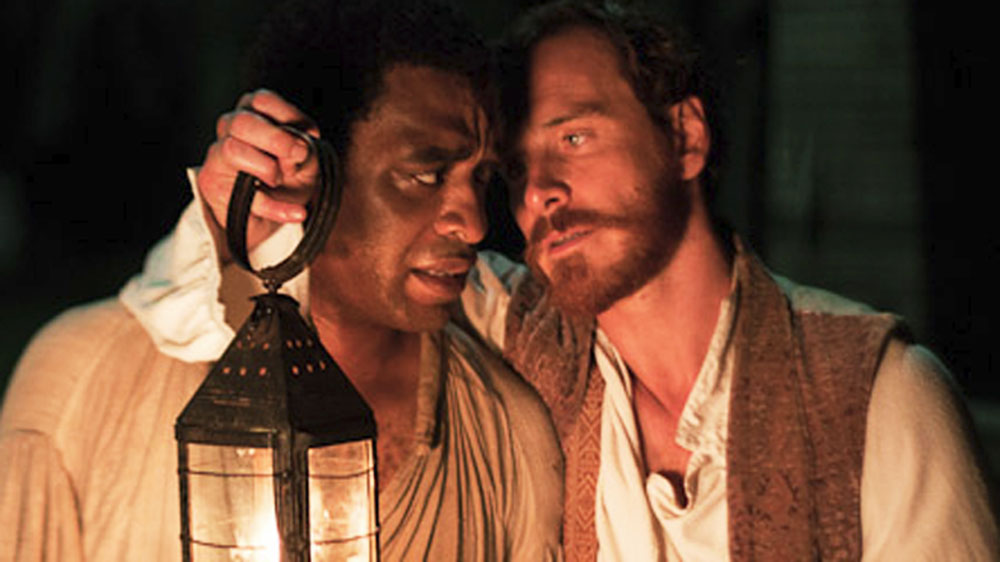[SPOILERS]
Today is Thanksgiving, and I just got home from seeing 12 Years a Slave by myself. That seems like the wrong movie to see on your own on Thanksgiving or any other day—after all, it’s based on the true story of a free black man in pre-Civil War New York that gets kidnapped and sold into slavery. The film is as heavy as they come, and extremely difficult to watch at times. However, despite the intense subject material, I’d argue it’s actually the perfect movie to see on your own.
There’s no overstating the atrocity of slavery or how bluntly it’s depicted in this film. That makes for an ultimately more rewarding movie-going experience. Nothing is sugarcoated here—slavery was an injustice, a despicable violation of basic human rights, and an ugly stain on American history. Chiwetel Ejiofor plays Solomon Northup with a quiet grace, navigating his character through emotional turbulence, physical brutality, and stony smarts in the face of certain death from any one misstep.
I was pretty acutely aware of myself throughout the whole film—how I was reacting to the content on screen, what thoughts were running through my head, and how often I shifted uncomfortably in my seat. Generally, you go to movies to escape, but I knew walking into this one that it would be far from that idea. There’s no taking a break from the real world to slink away into a fantasyland with 12 Years a Slave. It’s raw, it’s brutal, and it’s real.
What’s more, it doesn’t seem to matter what color your skin is when it comes to appreciating the film. Sure, the experience for a black moviegoer vs. a white one is undoubtedly different, but the meaning stays the same. The story is a powerful one regardless of who you are. The reason I feel like it’s such a unique movie to see on your own is because in doing so, it will force you look at your life with perspective. Instead of sharing a hand squeeze or a knowing look after the film with someone you love, or chatting casually about it with a friend or acquaintance, you’re compelled to look inward as the emotional final scene reaches its apex and fades to black.
Can you imagine going through hell for 12 years, losing hope several times along the way, until finally being reunited with the people you care about most in this world? Ejiofor plays this moment with profound weight—first dumbfounded that it’s all coming to an end, then utterly breaking down in front of the family he’s lived without for so long, apologizing and fighting through his tears to maintain some kind of composure. This is the kind of emotion you know you’d never want to experience, considering the circumstances that led to it, but you almost yearn for it, because it is so astonishingly powerful.
It’s almost too cheesy that I watched this film by myself on Thanksgiving, and that immediately after getting home, felt a need to get my thoughts onto a word doc about it. It’s the kind of movie-going experience that makes you take a step back (or in this case, several) and appreciate all the things you have in your life, and Thanksgiving is already supposed to be about that very concept. Call me a romantic, but I don’t care what it looks like. The fact of the matter is I wanted to see what all the fuss was about, and walking into the film, I knew it would leave a strong impression on me. I just didn’t know what kind until I sat through it and took at look at myself after.
You should try it for yourself.

Happy thanksgiving day! 😀
And dont forget to visit my blog :
http://parkchanyoungimnida.wordpress.com/
http://atalsaja.blogspot.com/
Thanks ! 😀
What an amazing review of an incredible film! You definitely do it justice and I’d be shocked if it doesn’t inspire more people to see it 🙂